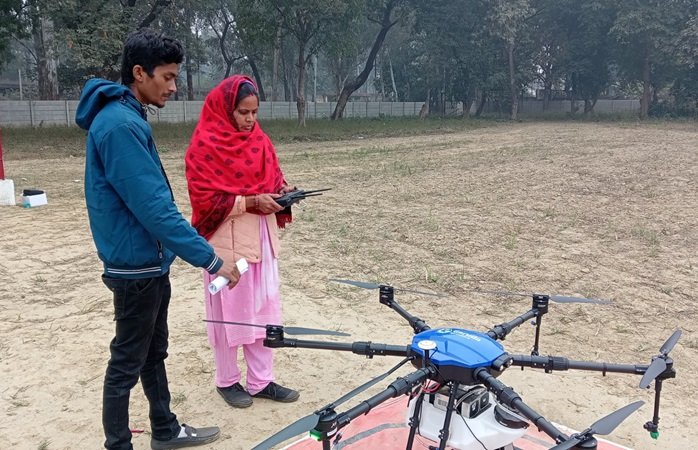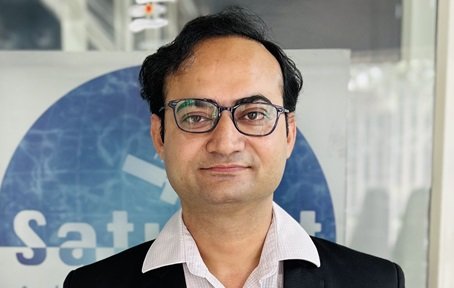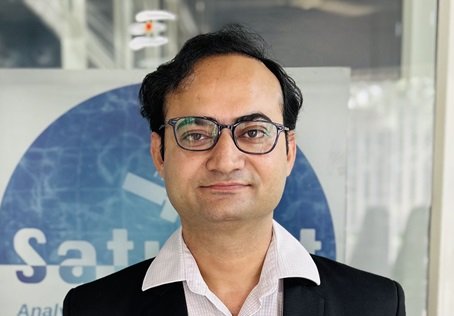Why B2B TECH REVOLUTION is Imperative for Indian Agriculture
By Dhanashree Mandhani, Founder and CEO, Salam Kisan
The agritech ecosystem offers a groundbreaking chance to boost agricultural efficiency by 25-35 per cent, alongside adding $95 billion to the economy. Firms that prioritise technology integration today will enhance their ability to gain market share in the fast-expanding agritech industry. Agribusinesses that adopt these technologies now will be the ones influencing the future of agriculture in the days to come.
Technology is rapidly becoming the cornerstone of agricultural transformation, poised to create a $62.76 billion opportunity for agribusinesses by 2031. As global food demand surges to meet the needs of 9.8 billion people by 2050, traditional farming methods alone cannot deliver the required 70 per cent increase in production. This gap presents a crucial opportunity for agribusinesses to leverage technology solutions that can revolutionise farming operations, optimise supply chains, and create sustainable growth at scale.
Agribusinesses are bridging this gap and bringing a paradigm shift in the agriculture sector with the integration of advanced technologies to bring operational efficiency. Leading companies are deploying artificial intelligence (AI), the Internet of Things (IoT), and drone technologies to create end-to-end solutions that benefit both their operations and their farming partners.
Why Tech Integration Is Strategic Imperative
The technological revolution has created significant strategic advantages for B2B players across the agricultural sector. Agricultural corporations and startups are developing and deploying AI-powered systems not just for farm-level decisions but to optimise their entire supply chain – from procurement to distribution. Supply chain optimisation through real-time tracking and analytics has enabled agribusinesses to manage inventory more efficiently and reduce wastage substantially. Supply chain technology has also emerged as a critical investment area, with solutions focusing on traceability, quality management, and logistics optimisation.
Another innovation that is empowering farmers and agribusinesses is precision agritech. They are revolutionising how agribusinesses optimise their operations and support their farming partners. By integrating GPS guidance systems, advanced sensors, and drone technologies, companies can now offer data-driven solutions that transform traditional farming practices. These enterprise-grade systems provide real-time analytics and actionable insights, enabling agribusinesses to help farmers reduce input costs while increasing yields. For instance, leading agricultural corporations are using sensor networks and drone fleets to create detailed field maps, monitor crop health, and implement variable-rate application of inputs – delivering both environmental sustainability and improved profit margins across their supply chain.
Furthermore, IoT-enabled solutions have revolutionised resource allocation across business networks, while advanced sensing technologies have dramatically improved quality assessment and standardisation processes.
Transformative Success Stories and Partnership
Successful technology integration in agriculture increasingly relies on strategic partnerships. India has made substantial investments in sustainable agricultural intensification (SAI) to tackle food security and sustainability challenges. The government, alongside private investors, allocates over $3 billion annually to agricultural innovation. These investments have resulted in the development of innovative solutions that strengthen market linkages, enhance crop resilience, and promote sustainable farming practices.
The impact of technology integration in agriculture is best illustrated through real-world success stories. For instance, the “Saagu Baagu” project, part of the Artificial Intelligence for Agriculture Innovation (AI4AI) initiative, has greatly boosted yields and incomes for 7,000 chilli farmers in Telangana. Developed in collaboration with the Telangana government, with support from the Bill and Melinda Gates Foundation and implemented by Digital Green, the project has leveraged agritech and data management to double farmers’ earnings.
By Dhanashree Mandhani, Founder and CEO, Salam







